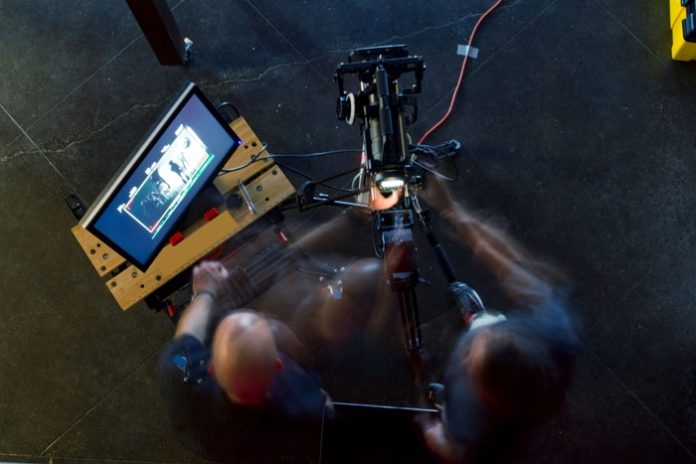Wales now has the largest stock of film and TV studios outside London and the South East, making up 13 per cent of the total stock in the UK, according to new research from global property consultancy Knight Frank.
Its 2022 UK Film and TV Studio Market Report reveals rising demand for film studio space in the UK has prompted increased interest from film production companies looking to take advantage of what the regional centres have to offer, with cities along the M4 such as Cardiff and Newport among some of the key locations seeing growth in major studio clusters.
Neil Francis, head of Logistics & Industrial for Knight Frank in Cardiff, said: “Cheaper rents, tax incentives, and access to natural landscape, scenery, nearby coastlines, and natural parks are among the many reasons why major cities in South Wales are gaining strong reputations as creative centres and film production hubs.“
The UK will need an additional six million sq ft of film and television production space by 2026 if the sector is to keep pace with growing demand, according to the Knight Frank research.
Knight Frank’s 2022 UK Film and TV Studio Market Report reveals that spending on UK film and television production rose from £2.85 billion in 2016 to £5.64 billion in 2021, a compound annual growth rate of 14.6 per cent. If demand for fit-for-purpose studio space continues to grow at its current rate, Knight Frank anticipates that the UK will need an additional six million sq ft of studio space in the next five years, a footprint equivalent to 15 Hogwarts Castles or 282 Quidditch pitches.
South Wales has gained a strong track record as a base for the film and HETV industry. In Cardiff, Wolf Studios Wales offers over 126,000 sq ft across six sound stages and is home to the production of The Night Of, His Dark Materials and the new series of Doctor Who.
Previously based at BBC Roath Lock Studios, the move of Doctor Who to Wolf Studios has led to BBC Studioworks – which provides studios and post production services to the industry – taking over the management of the 34,000 sq ft of sound stages at Roath Lock, signalling its arrival and commitment to South Wales.
Also in Cardiff, Great Point Seren Studios benefits from four sound stages totalling 74,000 sq ft in addition to abundant production office and ancillary space. Productions which have shot at Seren include A Discovery of Witches, Show Dogs and Sherlock. The first phase of plans at Great Point Seren Studios is underway to expand its existing site capacity by more than doubling its stage space,
In Bridgend, companies such as NBC Universal, Netflix and Disney have utilised the 53,000 sq ft across four sound stages at Dragon Studios, for productions including Ironclad and Keeping Faith. Meanwhile in Swansea, Da Vinci’s Demons and Amazon’s first original drama, The Collection were filmed at the shooting space at Bay Studios.
Neil Francis said: “The strength of the film and HETV sector in Wales is also good news for companies which operate in parallel to support industries, which are dominated by microenterprises with 10 or fewer employees.”
Local incentives supporting the film & HETV sector add to the attractiveness of regional film production. In Wales, alongside the UK tax relief of up to 25 per cent, qualifying films can also apply for separate Welsh subsidies. The Creative Wales Production Fund supports the growth of Wales as a destination of choice and is targeted at companies that provide diverse opportunities for a long term, skilled employment base and who are implementing the latest practices in sustainable production.
In addition, the Wales Cultural and Creative Support Scheme (WCCSS) will help support and sustain the sector due to ongoing challenges resulting from Covid-19 and will run until 2025.
Neil Francis said: “We expect some further new film and TV studio developments in the region. In addition to an expansion at Great Point Seren Studios, Cardiff, a £3.8 million extension is planned at Dragon Studios, Bridgend, due for delivery mid-next year.. Not only will these developments create jobs, skills and training opportunities, but they will also support the local supply chains and bring economic and social value to the surrounding areas.
Claire Williams, Industrial & Logistics Research Lead at Knight Frank added: “With global video subscriptions expected to continue to rise and requirements for production space growing in tandem, investors and film studio platform operators who are able to deliver fit-for-purpose production space in good locations stand to benefit from robust occupier demand and a dependable income stream.
“The government’s Levelling Up agenda will also incentivise further investment and TV and film production beyond the M25, opening up a spectrum of opportunity for property investment as well as business growth and investment. The growth of the sector is also driving demand for industrial warehouse properties.”



















